News
Blockchain Projects – Blockchain Council
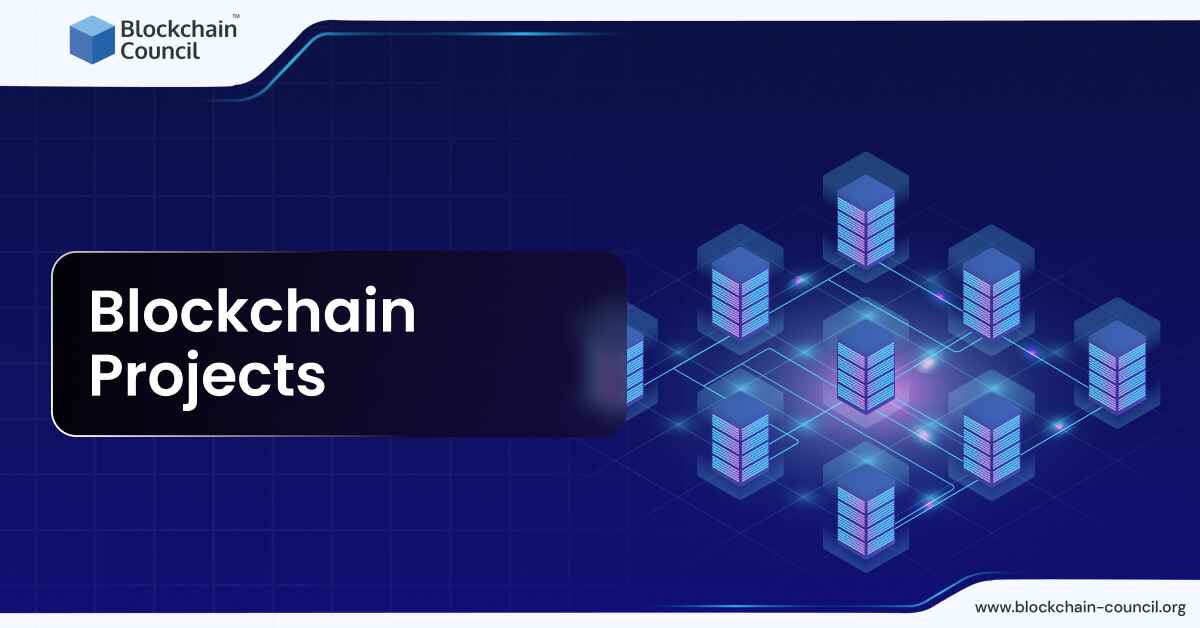
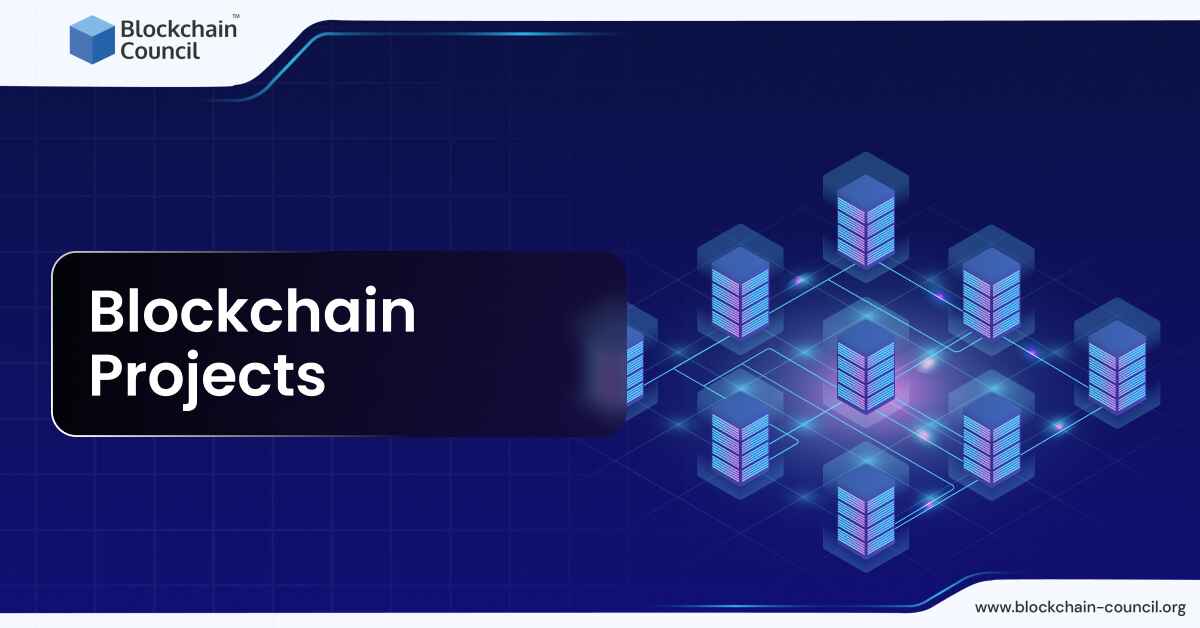
-
Blockchain Council
-
July 06, 2024
What is a Blockchain Project?
A Blockchain project involves developing and implementing Blockchain technology to solve specific problems or create new opportunities. These projects can range from creating decentralized applications (dApps) to developing new cryptocurrencies or enhancing existing business processes through Blockchain. For instance, a Blockchain project might involve creating a decentralized finance (DeFi) platform that allows users to lend and borrow assets without traditional banks, or developing a supply chain system that tracks products transparently from origin to consumer.
List of Top 10 Blockchain Project Ideas in 2024 [For All Levels]
1. Decentralized Energy Marketplace
Description: This project involves creating a community-based energy trading platform where users can buy and sell surplus energy. Prosumers (those who produce energy, typically via solar panels) can sell excess energy to consumers using Blockchain technology. The system operates with a local microgrid and uses a token-based system for transactions.
Why It’s on the List: The decentralized energy marketplace addresses the need for sustainable energy solutions and offers a practical application of Blockchain technology. It promotes the efficient use of renewable energy sources and supports local energy production and consumption, reducing reliance on centralized power grids.
GitHub Score: High. Projects in this category often have robust open-source contributions and active development communities. For example, similar projects on GitHub have high activity levels and frequent updates.
2. Tokenized Asset Management
Description: This project involves creating a platform where users can tokenize physical and digital assets such as real estate, artwork, and digital collectibles. This platform allows for the fractional ownership and trading of these assets, improving liquidity and accessibility.
Why It’s on the List: Tokenized asset management democratizes access to investment opportunities, enabling more people to participate in markets traditionally reserved for the wealthy. By using Blockchain, it ensures transparency, security, and efficiency in trading and managing assets.
GitHub Score: High. Projects focused on tokenization and asset management typically have extensive documentation and active repositories due to the complex nature of integrating physical assets with digital tokens.
3. Blockchain-Based Voting System
Description: This project focuses on developing a secure and transparent voting system using Blockchain technology. Voters can cast their votes securely and anonymously, and the results are verifiable by anyone with access to the Blockchain.
Why It’s on the List: The Blockchain-based voting system enhances the integrity and credibility of the voting process. It offers a solution to many issues plaguing traditional voting systems, such as voter fraud, tampering, and lack of transparency.
GitHub Score: Moderate to High. Voting system projects are gaining traction, especially in areas with strong interest in secure and transparent electoral processes. The repositories usually show steady contributions and community interest.
4. Blockchain-Based Crowdfunding Platform
Description: This project involves developing a crowdfunding platform where projects can raise funds using tokenized assets or cryptocurrencies. Smart contracts automate the fundraising process, ensuring that funds are distributed transparently to backers.
Why It’s on the List: Blockchain-based crowdfunding offers greater transparency and security compared to traditional methods. It ensures that funds are used as intended, which builds trust among backers. This technology democratizes fundraising, making it accessible to more people globally.
GitHub Score: High. Projects like these often see substantial activity and contributions on GitHub, reflecting their complexity and the interest they generate among developers.
5. Identity Management System
Description: This project focuses on building a secure identity management system using Blockchain. Users can control their personal data, enabling decentralized authentication and streamlining identity verification processes for various online services.
Why It’s on the List: Identity theft and fraud are significant concerns in the digital age. Blockchain-based identity management enhances security and privacy, giving users control over their data and reducing the risk of identity theft.
GitHub Score: Moderate to High. Identity management projects typically have active development communities and detailed documentation, given their importance in enhancing security.
6. Medical Records Management
Description: This project involves creating a Blockchain solution for securely storing and sharing medical records between patients, healthcare providers, and insurers. It ensures compliance with privacy regulations while improving data accessibility and interoperability in healthcare.
Why It’s on the List: Managing medical records securely and efficiently is critical. Blockchain technology can provide a tamper-proof system that ensures privacy and quick access to records, which is essential for timely medical care.
GitHub Score: High. Healthcare-related Blockchain projects are usually well-supported due to their potential to make significant impacts on data security and patient care.
7. Decentralized Supply Chain Management
Description: This project focuses on creating a transparent and efficient supply chain using Blockchain. Each product’s journey from manufacturer to consumer is tracked on a Blockchain, ensuring authenticity and reducing fraud.
Why It’s on the List: Supply chain transparency is crucial for combating counterfeit goods and ensuring product quality. Blockchain provides a reliable way to track goods, which is beneficial for both businesses and consumers.
GitHub Score: High. Projects like these attract active contributions due to their practical applications and potential to improve global trade logistics.
8. Immutable Academic Credentials Verification System
Description: This project involves building a system to verify and issue academic credentials using Blockchain. Diplomas, certificates, and transcripts are stored on a tamper-proof ledger, making it easy to verify their authenticity.
Why It’s on the List: Academic fraud is a significant issue, and Blockchain offers a secure solution. This system streamlines the verification process for employers and institutions, ensuring trust in educational qualifications.
GitHub Score: Moderate to High. Education-related Blockchain projects have steady contributions and active communities due to their importance in ensuring the authenticity of academic credentials.
9. Blockchain-Powered Energy Trading Platform
Description: This project creates a peer-to-peer platform for trading surplus renewable energy within a local community. Smart contracts automate transactions and settle payments in real-time, optimizing energy distribution.
Why It’s on the List: Decentralized energy trading promotes sustainability and reduces dependence on centralized utilities. It encourages renewable energy production and creates a more resilient energy infrastructure.
GitHub Score: High. Energy trading projects are well-supported due to their innovative approach to sustainable energy solutions and community impact.
10. Decentralized Social Media Platform
Description: This project aims to develop a social media platform where users control their data and content. Blockchain ensures privacy, ownership, and resistance to censorship, with token-based incentives for creators.
Why It’s on the List: Privacy concerns and data breaches are prevalent in traditional social media. A decentralized platform addresses these issues by giving users control over their data and offering fair compensation for content.
GitHub Score: High. Social media projects are popular among developers due to their potential to revolutionize how we interact online and protect user privacy.
Blockchain Projects for Beginners
Blockchain projects can be quite complex, but some are perfect for beginners. Here are five projects that are great for those new to Blockchain development, along with their GitHub ratings.
1. Hyperledger Fabric
Description: Hyperledger Fabric is an open-source enterprise-grade permissioned distributed ledger framework. It allows developers to create Blockchain-based solutions and applications with a modular architecture.
Why It’s Good for Beginners: It offers a comprehensive tutorial and extensive documentation, making it easier to understand the core concepts of Blockchain technology. Beginners can learn about permissioned networks, consensus algorithms, and smart contracts.
GitHub Score: 15,535 stars.
2. Solana
Description: Solana is a high-performance Blockchain supporting fast, secure, and scalable decentralized apps and crypto-currencies.
Why It’s Good for Beginners: Solana is known for its speed and low transaction costs, which can be advantageous for those starting to build decentralized applications (DApps). Its active developer community and extensive resources help beginners grasp the basics of Blockchain development.
GitHub Score: 12,631 stars.
3. Chia Network
Description: Chia Network uses a Blockchain and smart transaction platform created by Bram Cohen, the inventor of BitTorrent. Chia improves on the traditional Blockchain infrastructure by using proof of space and time.
Why It’s Good for Beginners: Chia’s approach to consensus is energy-efficient and offers an alternative to the more resource-intensive proof-of-work. This makes it easier to run and test nodes, providing a good learning platform for new developers.
GitHub Score: 10,848 stars.
4. Hardhat
Description: Hardhat is a development environment to compile, deploy, test, and debug Ethereum software.
Why It’s Good for Beginners: Hardhat simplifies the process of building and testing smart contracts. Its comprehensive plugin ecosystem and user-friendly documentation help beginners quickly get up to speed with Ethereum development.
GitHub Score: 6,987 stars.
5. Monero
Description: Monero is a secure, private, and untraceable cryptocurrency. It focuses on privacy and decentralization.
Why It’s Good for Beginners: Monero’s well-documented codebase and emphasis on privacy give beginners insight into advanced cryptographic concepts and Blockchain security. This can be particularly beneficial for those interested in privacy-focused technologies.
GitHub Score: 8,737 stars.
Blockchain Projects Ideas for Intermediate Professionals
Exploring Blockchain projects can help intermediate professionals deepen their understanding and enhance their skills. Here are five specific project ideas:
1. Tokenized Asset Management
Description: This project involves creating a decentralized platform that allows users to tokenize and manage various assets, such as real estate, artwork, and digital collectibles. Tokenization enables fractional ownership and trading, making it easier to buy and sell shares of valuable assets.
Why It’s Good for Intermediate Professionals: It helps in understanding the intricacies of Blockchain technology, including smart contracts, asset tokenization, and decentralized trading.
GitHub Score: High (around 4.5 stars)
2. Fake Product Identification System
Description: This project aims to develop a system for tracking and verifying the authenticity of products using Blockchain technology. Each product gets a unique tag that records its origin and ownership history.
Why It’s Good for Intermediate Professionals: It offers practical experience in using Blockchain for supply chain management and product verification, which are crucial in various industries.
GitHub Score: Moderate to High (around 4 stars)
3. Decentralized Cryptocurrency Exchange (DEX)
Description: Build a decentralized platform for trading cryptocurrencies without relying on a central authority. Users control their private keys, enhancing security and privacy.
Why It’s Good for Intermediate Professionals: This project helps in understanding decentralized finance (DeFi), smart contract development, and the importance of security in Blockchain transactions.
GitHub Score: High (around 4.5 stars)
4. Blockchain-Based Voting System
Description: Develop a secure and transparent voting system using Blockchain. This system ensures that votes are accurately recorded and verifiable by anyone with access to the Blockchain.
Why It’s Good for Intermediate Professionals: It provides insights into how Blockchain can improve trust and transparency in voting, highlighting the application of smart contracts and decentralized data storage.
GitHub Score: High (around 4.5 stars)
5. Decentralized Energy Marketplace
Description: Create a marketplace where community members can buy and sell surplus energy generated from renewable sources. The platform uses Blockchain to track and manage energy transactions.
Why It’s Good for Intermediate Professionals: It combines Blockchain technology with real-world applications in energy management, offering experience in building decentralized systems and handling microtransactions.
GitHub Score: High (around 4.5 stars).
Advanced Blockchain Projects Ideas for Experienced Professionals
Here are five advanced Blockchain project ideas suitable for experienced professionals:
- Bitcoin Core: This project involves working on the core implementation of Bitcoin, the leading cryptocurrency. It’s a comprehensive undertaking that includes everything from protocol enhancements to feature development and security improvements. This project is excellent for experienced professionals because it demands deep knowledge of cryptographic principles, peer-to-peer networks, and Blockchain fundamentals. As of the latest update, Bitcoin Core has 77,076 stars on GitHub, indicating its high relevance and use within the community.
- Go Ethereum (Geth): Geth is the official Go implementation of the Ethereum protocol. It is primarily used to run Ethereum nodes in the Go programming environment. Professionals can work on network protocols, consensus algorithms, and other advanced features. With 46,657 stars on GitHub, this project is well-respected and crucial for those interested in Ethereum’s network development.
- Hyperledger Fabric: This is an enterprise-grade permissioned Blockchain framework that facilitates the development of solutions and applications with a modular architecture. It’s particularly good for experienced professionals looking to build Blockchain solutions that require high degrees of privacy, scalability, and performance. Hyperledger Fabric has 15,546 stars on GitHub, making it a leading choice for enterprise Blockchain solutions.
- Corda: An open-source Blockchain project designed for business from the start, Corda specializes in enabling businesses to transact directly and in strict privacy using smart contracts. The project is ideal for professionals focusing on financial services and has 3,975 stars on GitHub. It requires expertise in building interoperable Blockchain networks that preserve privacy while facilitating direct transaction value.
- Solana: Known for its high-speed transaction capabilities, Solana is a web-scale Blockchain that supports decentralized apps and marketplaces. It’s suitable for experienced developers interested in building scalable applications that require fast processing times. Solana has 12,654 stars on GitHub, indicating robust community engagement and ongoing development.
Best Platforms to Work on Blockchain Projects
- Ethereum: Known for its introduction of smart contracts, Ethereum is upgrading to Ethereum 2.0, which aims to enhance scalability and reduce transaction fees by shifting to a proof-of-stake consensus.
- Solana: Notable for its exceptional transaction speeds and low fees, Solana uses a unique consensus mechanism, Proof of History, making it ideal for applications needing high throughput like gaming and decentralized exchanges.
- Binance Smart Chain (BSC): Favored for its compatibility with Ethereum, enabling easy porting of dApps, and known for high transaction speeds and lower costs.
- Polkadot: It stands out for enabling interoperability between various Blockchains with its parachain architecture, facilitating secure cross-chain communication.
- Avalanche: Known for its rapid transaction finality and ability to create custom Blockchain networks, Avalanche is suitable for a range of applications, including finance and logistics.
- Polygon: As a layer 2 solution for Ethereum, Polygon enhances scalability and reduces fees. It has attracted major companies like Nike and Reddit.
- Hyperledger Fabric: An enterprise-grade permissioned Blockchain framework, Hyperledger Fabric supports private transactions and confidential contracts, making it ideal for business use cases.
Essential Factors in the Blockchain Project Ideas
- Technological Innovation: Projects should incorporate advanced technologies that offer unique solutions to current limitations.
- User Adoption: Platforms need a growing user base that trusts and utilizes the platform, indicating its functionality and stability.
- Network Security: Ensuring robust defenses against cyber threats and secure transaction processing is crucial.
- Scalability: The platform should manage an increasing load of transactions and users efficiently.
- Development Environment: Ease of developing and deploying decentralized applications is essential for fostering innovation.
What are the Blockchain Project’s Goals?
- Decentralization: Reduce reliance on centralized authorities for transactions, increasing transparency and trust.
- Enhanced Security: Use of cryptography in Blockchain ensures secure transactions and protects against fraud.
- Increased Efficiency and Speed: Blockchain projects aim to streamline processes and reduce transaction times across various industries.
- Cost Reduction: By automating processes and reducing intermediaries, Blockchain can lower transaction and operational costs.
- Innovation in Services: Introduce new services and improve existing ones, especially in fields like finance, healthcare, and supply chain management.
Importance of Blockchain Projects
Blockchain projects have become essential due to their transformative impact on various industries. They offer several advantages like increased transparency, enhanced security, and reduced costs. For instance, in finance, Blockchain helps streamline processes such as payments and trade settlements, making them faster and more cost-effective.
It also enables the creation of Central Bank Digital Currencies (CBDCs), which are expected to revolutionize payment systems by offering greater efficiency and security. Beyond finance, Blockchain is making strides in healthcare by securing patient data and improving data sharing among providers, and in supply chain management by ensuring product traceability and authenticity.
Problems Faced in Blockchain Project
Despite their potential, Blockchain projects face several challenges. Regulatory uncertainty is a significant issue, as different countries have varying rules regarding Blockchain and cryptocurrencies, making it difficult for companies to ensure compliance globally. Additionally, the high costs of implementing and maintaining Blockchain technology can be a barrier, especially for smaller businesses.
Security concerns also persist, as Blockchain networks can be targets for cyberattacks. Ensuring data privacy while maintaining transparency is another complex challenge. Lastly, the rapid pace of technological advancement in Blockchain can make it hard for businesses to keep up and integrate the latest innovations effectively.
Blockchain Courses to Start a Career With
To start a career in Blockchain, several courses and certifications can provide a solid foundation. The Blockchain Council offers a Certified Blockchain Expert™ certification, which covers the basics of Blockchain technology, smart contracts, and decentralized applications. Another good option is the Certified Blockchain Architect™ or the Certified Blockchain Developer™, if you want to get ahead in Blockchain development.
For those interested in Ethereum, the Certified Ethereum Expert™ and the Certified Ethereum Developer™ teach how to build decentralized applications on the Ethereum network. Additionally, the Blockchain Council offers various Blockchain and related certifications catering to different aspects of the technology and its applications.
FAQs on Blockchain Projects
What is a Blockchain project?
- A Blockchain project involves using Blockchain technology to solve specific problems or create new opportunities.
- These projects can range from developing decentralized applications and cryptocurrencies to enhancing traditional business processes.
What are some popular Blockchain project ideas for 2024?
- Decentralized Energy Marketplace: Trading platform for community-based energy.
- Tokenized Asset Management: Platform for fractional ownership of assets like real estate and art.
- Blockchain-Based Voting System: Secure and transparent electoral system.
- Identity Management System: Enhances security and privacy of personal data.
What makes Blockchain projects beneficial?
- Increased transparency: Blockchain provides clear transaction histories.
- Enhanced security: Uses cryptography to secure data.
- Improved efficiency and speed: Streamlines processes across various industries.
- Cost reduction: Reduces intermediaries and associated costs.
How do I start a career in Blockchain technology?
- Explore educational courses: Look into certifications like Certified Blockchain Expert™.
- Engage with the community: Participate in forums, attend workshops, and contribute to open-source projects.
- Gain practical experience: Start with small, personal projects or contribute to existing ones on platforms like GitHub.
- Stay updated: Keep up with the latest trends and advancements in Blockchain technology.
News
Blockchain Technology Will Transform Water Access and Management Globally

Disclosure: The views and opinions expressed here are solely those of the author and do not represent the views and opinions of the crypto.news editorial team.
Access to clean water is a basic human need, yet billions of people around the world still struggle to get it. According to the World Health Organization, over 2 billion people live in countries suffering from severe water stress, and this number is expected to continue to grow due to climate change and population growth.
Traditional water management systems have struggled to address these challenges, often hampered by inefficiencies, lack of transparency, and misallocation of resources. Blockchain technology offers a promising solution to these challenges, providing equitable access and sustainable use of this crucial resource.
The current state of water management
Water management today faces several pressing issues. Inefficiencies in water supply, distribution, and use, coupled with a lack of real-time monitoring, often result in resource waste and misallocation. Many water sources fail to realize their full potential due to infrastructure and financing shortfalls. For example, the Environmental Protection Agency (EPA) report indicated that the United States would need to invest $625 billion over the next 20 years to repair, maintain and improve the country’s drinking water infrastructure due to aging pipes and other infrastructure problems. Additionally, in the United States alone, household leaks can to waste nearly 900 billion gallons of water per year nationwide. This is equivalent to the annual domestic water consumption of nearly 11 million homes.
Furthermore, corruption and mismanagement of water resources can cause unequal distribution, with disadvantaged communities often bearing the brunt of water scarcity. For example, South Africa is struggling with myriad challenges to its water security: drought, inadequate water conservation measures, outdated infrastructure, and unequal access to water resources. The country faces significant water scarcity, with demand expected to outstrip supply by 2030, creating a projected gap of 17%.
Furthermore, the global water industry is highly monopolized, with a few key players controlling a significant share of the market. These companies exert substantial influence over the water supply chain, often prioritizing profit over equitable distribution and environmental responsibility. This concentration of power can lead to inflated prices and limited access for vulnerable populations. The global bottled water market alone is projected to reach $509.18 billion by 2030, with these large companies capturing a significant share of revenue. This monopolization exacerbates existing inequalities in water access and highlights the need for more decentralized and community-driven water management solutions.
Source: Grand View Search
The potential of blockchain in water management
Blockchain technology can address these issues by providing a transparent, secure, and decentralized platform for water resource management. This approach offers several advantages:
- Transparency and accountability. Blockchain’s immutable ledger ensures that all transactions and data entries are transparent and cannot be changed once recorded. This transparency can reduce corruption and ensure that water resources are allocated fairly and efficiently. For example, blockchain can be used to track water usage from source to end user, providing a clear record of how water is distributed and used. This level of transparency can help hold authorities accountable and manage water resources sustainably.
- Efficient resource management. Blockchain can facilitate the creation of smart contracts, which are self-executing contracts with the terms of the agreement written directly into the code. These contracts can automate water distribution based on real-time data, directing water to where it is needed most. For example, smart contracts could be used to manage urban water supply systems, automatically adjusting water distribution based on real-time consumption patterns and demand. This can help optimize water use, reduce waste, and ensure that households and businesses receive the right amount of water at the right time.
In Dubai, the Dubai Electricity and Water Authority (DEWA) has implemented a blockchain-based smart water network initiative as part of its broader smart city strategy. This project integrates blockchain technology with IoT sensors to monitor water usage in real time, manage distribution, and detect leaks. The decentralized ledger ensures data integrity and transparency, enabling more efficient water management and reduced waste. DEWA’s initiative aims to improve sustainability and resource management in the rapidly growing city, highlighting the potential of blockchain to support urban water management and conservation efforts.
Community participation and ownership
Through blockchain, individuals can directly control and monetize their access to water resources, eliminating the need for third-party intermediaries. This direct control model allows local communities to make collective and transparent decisions about their water use. By managing their water directly from the source, communities can tailor water management practices to their specific needs, promoting equitable distribution and encouraging a sense of accountability and stewardship.
Additionally, future models could allow people to monetize their access to water through web3 technologies. For example, a community-to-business (C2B) model could allow people to sell water directly to companies. In this model, people do not have to own the water directly, but can profit by staking their tokens during event sales pools. This approach not only supports sustainable water management, but also creates economic opportunities for community members. Additionally, a “Burn to Secure” protocol can be used to provide water allocation rights. This protocol provides a true sense of water security and financial opportunity by allowing people to redeem their rights. This system not only secures future water allocations, but also increases token scarcity and value.
Additionally, a pure sense of investment is achieved through investments in water sources. This leads to potential financial returns and dividends by addressing the inefficiencies in water supply mentioned above. By investing to finance infrastructure projects, such as building factories and improving distribution systems, more water can be brought to communities, creating additional economic opportunities.
Monetizing water access through the C2B model, the “Burn to Secure” protocol, and investments in water sources all generate economic benefits for the community, promoting a more equitable and efficient water management system.
Overcoming challenges
While blockchain technology has the potential to improve water management, there are challenges to its adoption. The complexity of blockchain systems and the need for technological infrastructure can be barriers, especially in developing regions. Additionally, there are concerns about the significant energy consumption of blockchain networks. However, technological advances and the development of more energy-efficient blockchain solutions are helping to alleviate these concerns. Additionally, education and capacity building are key to ensuring stakeholders understand how to effectively use blockchain technology. Governments, NGOs, and private sector partners need to work together to provide training and support to communities and water management authorities.
Blockchain technology offers a practical and effective means to improve water management. In addition to addressing inefficiencies, blockchain empowers communities, promotes sustainable practices, and opens up new economic opportunities through models like community-to-business (C2B). As we face the growing challenges of climate change and population growth, blockchain is not only an innovative solution, but represents a fundamental shift in the way we manage and value water resources. Adopting blockchain in water management is essential to creating a sustainable and equitable future by changing the way we interact with and protect our most vital resource.

Jean-Hugues Gavarini
Jean-Hugues Gavarini is the CEO and co-founder of LAKE (LAK3), a real-world asset company leveraging blockchain technology to decentralize access to the global water economy. LAKE aims to ensure access to clean water for all, protect water resources, and deliver water to those in need through innovative technologies. Jean-Hugues has a diverse career spanning the luxury, fashion, and footwear industries. His career path includes notable successes at Mellow Yellow, Cremieux, and Tod’s. Raised between Silicon Valley and the French Alps, Jean-Hugues has always been immersed in technology and freshwater resources. In 2018, Jean became the CEO of Lanikea Waters, a water solutions entity based in the French Alps. In 2019, the concept of LAKE was born, embodying his commitment to innovation and sustainability.
News
Blockchain and AI Expo 2024
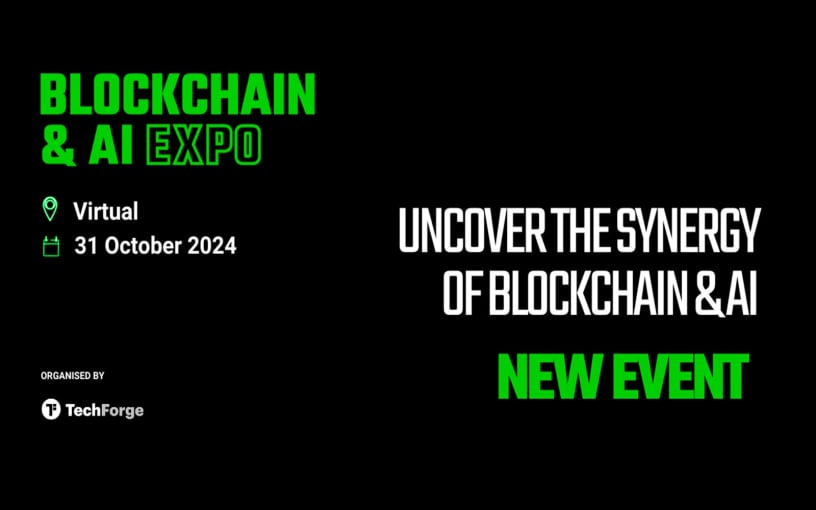
With rapid advances in the world of AI and blockchain, there are opportunities to leverage the security and transparency features of blockchain to improve the reliability and trust of AI systems and data transactions.
Explore the synergy of these advanced technologies in virtual mode Blockchain and AI Expowhich takes place on October 31, 2024 TO 10:00 GMT.
The event features cutting-edge presentations led by leading experts in evolving fields. Presentations are set to explore opportunities and challenges in the fusion of blockchain and AI, real-world applications, ethics, innovations in environmental sustainability, and more!
Gain a comprehensive understanding of how these technologies can synergistically drive innovation, optimize operations, and promote strategic growth opportunities. Develop your knowledge to facilitate informed decision making and give your company a competitive edge in the growing technology landscape.
News
Nigeria Eyes National Blockchain Nigerium for Data Sovereignty
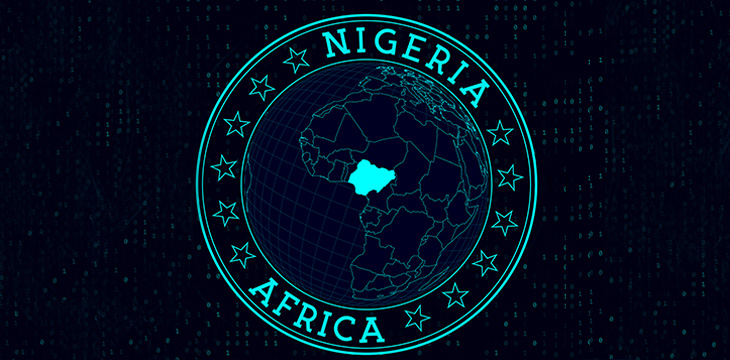
Nigeria is keeping an eye on a new native blockchain network to protect the country’s data sovereignty.
According to local media, a team from the University of Hertfordshire has proposed the new blockchain, Nigeriato the National Information Technology Development Agency (NITDA).
Chanu Kuppuswamy, who leads the team, argued that relying on blockchain networks whose developers are located in other regions poses national security risks to the Nigerian government. He further said that Nigerium would allow the West African nation to customize the network to meet specific needs, while also promoting data sovereignty.
In his presentation, Chanu cited the recent migration of Ethereum to test of participation (PoS) consensus as an instance in which no Nigerians were involved but whose impact is far-reaching.
“Developing an indigenous blockchain like Nigerium is a significant step towards achieving data sovereignty and promoting trust in digital transactions in Nigeria,” he said.
While receiving the proposals in Abuja, NITDA’s Kashifu Abdullahi acknowledged the benefits a local blockchain would bring to Nigeria, including increased security of citizens’ data.
However, a NITDA spokesperson later clarified that Nigerium is still at the proposal stage and that the government has not yet decided whether to proceed or not.
“The committee is still discussing the possibility with stakeholders. Even if a decision is finally made, there is no guarantee that the name will be Nigerium,” the spokesperson told the media.
Nigerium’s reception in the country has been mixed. Some, like financial analyst Olumide Adesina, To say the network is “dead on arrival”. He believes the Nigerian government’s poor record in following through on its big technology plans will claim another victim. He pointed to the eNaira as a missed opportunity whose chances of success were much higher than those of Nigerium.
Others welcomed the proposal. Chimezie Chuta, who chairs the renewed The Nigerian Blockchain Policy Committee is “extremely optimistic“that Nigerium will be more successful than eNaira.
Speaking to a local news agency, Chuta stressed that eNaira failed because the central bank initiated the project on its own, without involving any stakeholders.
“They just cooked it and expected everyone to like it. [With Nigerium]there will be a lot of collaboration,” he said.
Registration of property title, digital identity and Certificate Verification are among the use cases that Nigerium is expected to initially target. However, Nigeria has already made progress in some of these fields through public blockchains.
SPPG, a leading school in governance and politics, announced in May the country’s first blockchain certificate verification system. Built on the The BSV BlockchainIt was developed in collaboration with the blockchain data recording company VX Technologies and local lender Sterling Bank.
Watch: The Future Has Already Arrived in Nigeria
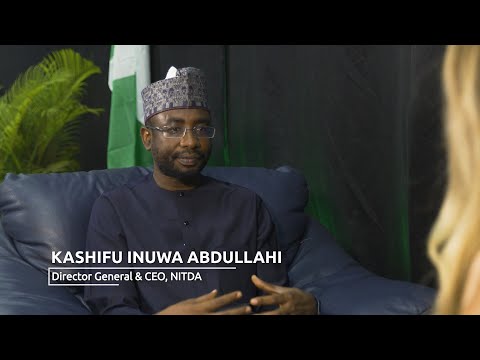 Italian: https://www.youtube.com/watch?v=M40GXUUauLU width=”560″ height=”315″ frameborder=”0″ allowfullscreen=”allowfullscreen”>
Italian: https://www.youtube.com/watch?v=M40GXUUauLU width=”560″ height=”315″ frameborder=”0″ allowfullscreen=”allowfullscreen”>
New to blockchain? Check out CoinGeek Blockchain for Beginners section, the definitive guide to learn more about blockchain technology.
News
Cambodian CBDC Developer to Build Palau Bond Market on Blockchain: Report
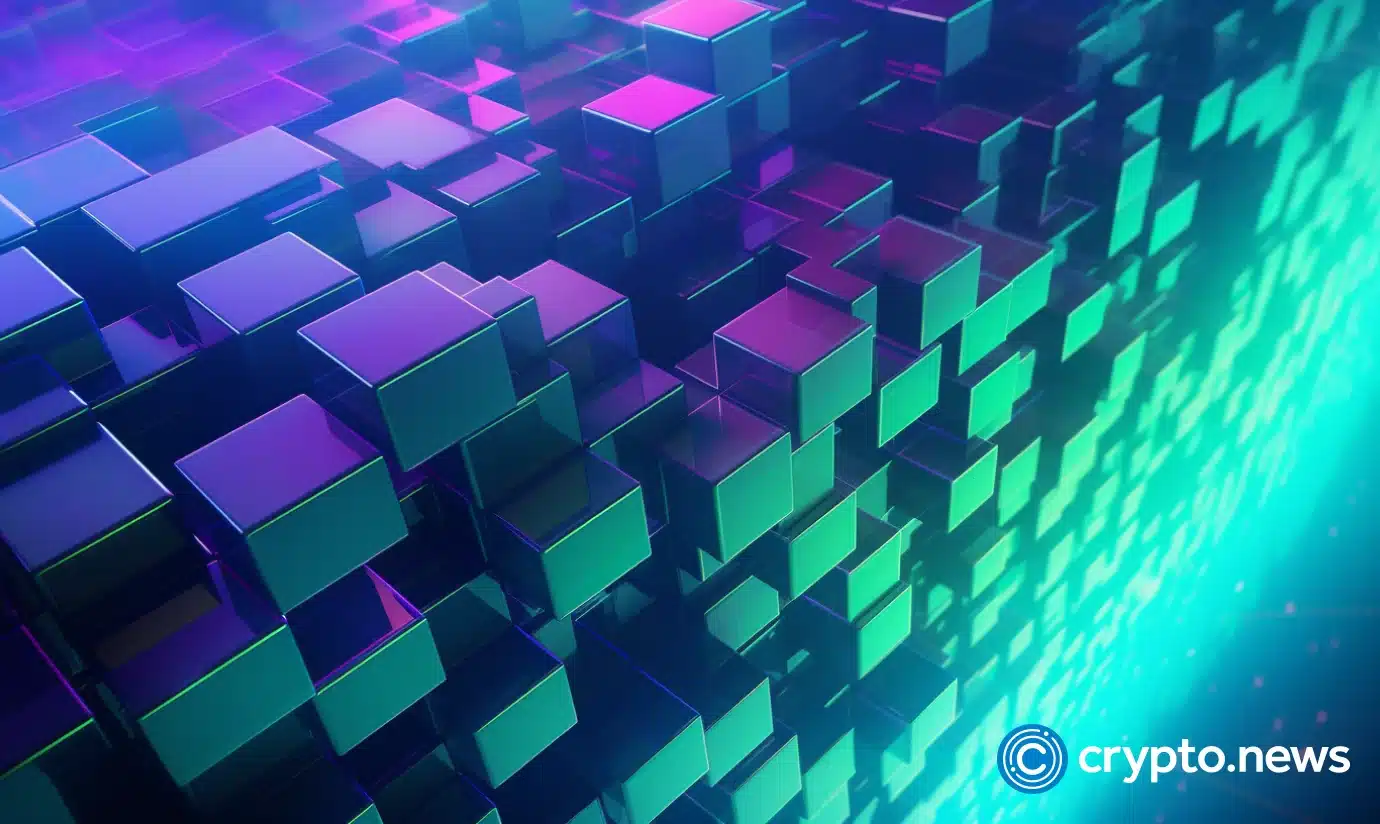
A Japanese fintech developer will build a blockchain-based bond market gateway for Palau, aiming to launch a trial in 2024 and a full launch the following year.
Japanese fintech developer Suramitsubest known for developing a central bank digital currency (CBDC) for Cambodia, is intended to build a Blockchain-gateway to the bond market based on the Pacific island nation of Palau, Nikkei He learned.
Soramitsu won the contract and plans to introduce the market on a trial basis in fiscal 2024, with a full launch scheduled for the following year, allowing the Palauan government to issue bonds to individual investors and efficiently manage principal and interest payments, according to the report.
The total cost of the project is estimated at several hundred million yen ($1.2 million to $5.6 million), less than half the cost of a non-blockchain alternative, people familiar with the matter said. The project has reportedly received support from Japan’s Ministry of Economy, Trade and Industry, with Japan’s foreign and finance ministries providing strategic and management advice on the project.
Soramitsu’s successful development of Cambodia’s CBDC in 2020 has boosted its reputation, with the digital currency’s popularity soaring, with over 10 million accounts opened by December 2023, representing 60% of Cambodia’s population. Following this, Cambodia’s central bank governor Chea Serey indicated intends to expand the reach of its CBDC internationally, particularly through collaboration with UnionPay International, the Chinese card payment service, and other global partners.
While Soramitsu’s work in Cambodia has been well received, the long-term popularity of CBDCs remains to be seen. As of late June, crypto.news reported a sharp drop in activity in India’s digital currency, the e-rupee, after local banks stopped artificially inflating its values.
According to people familiar with the matter, the Reserve Bank of India managed to hit the 1 million retail transaction milestone last December only after the metrics were artificially infiltrated by local banks, which offered incentives to retail users and paid a portion of the bank’s employees’ salaries using the digital currency.
-

 News1 year ago
News1 year ago“Captain Tsubasa – RIVALS” launches on Oasys Blockchain
-

 Ethereum1 year ago
Ethereum1 year agoComment deux frères auraient dérobé 25 millions de dollars lors d’un braquage d’Ethereum de 12 secondes • The Register
-

 News1 year ago
News1 year agoSolana ranks the fastest blockchain in the world, surpassing Ethereum, Polygon ⋆ ZyCrypto
-

 Videos1 year ago
Videos1 year agoHistoric steps for US cryptocurrencies! With a shocking majority vote!🚨
-

 Videos1 year ago
Videos1 year agoIs Emorya the next gem💎 of this Bitcoin bull run?
-

 News1 year ago
News1 year agoSolana Surpasses Ethereum and Polygon as the Fastest Blockchain ⋆ ZyCrypto
-

 Videos1 year ago
Videos1 year agoNexus Chain – Ethereum L2 with the GREATEST Potential?
-

 Ethereum1 year ago
Ethereum1 year agoScaling Ethereum with L2s damaged its Tokenomics. Is it possible to repair it?
-
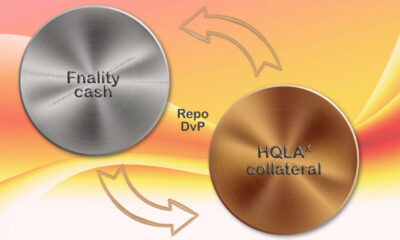
 News1 year ago
News1 year agoFnality, HQLAᵡ aims to launch blockchain intraday repositories this year – Ledger Insights
-
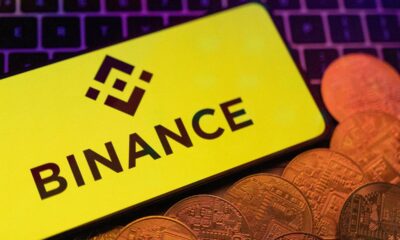
 Regulation1 year ago
Regulation1 year agoFinancial Intelligence Unit imposes ₹18.82 crore fine on cryptocurrency exchange Binance for violating anti-money laundering norms
-
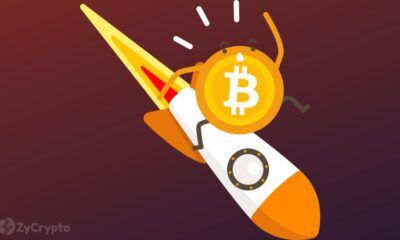
 Bitcoin1 year ago
Bitcoin1 year agoBitcoin Drops to $60K, Threatening to Derail Prices of Ether, Solana, XRP, Dogecoin, and Shiba Inu ⋆ ZyCrypto
-
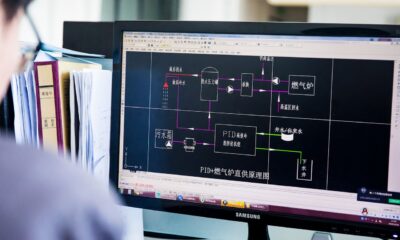
 News1 year ago
News1 year agoSendBlocks Debuts with Major Support to Improve Blockchain Data Management











